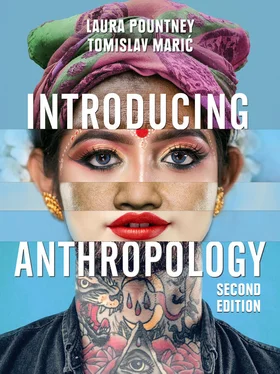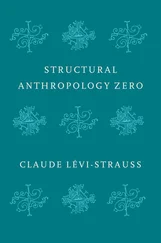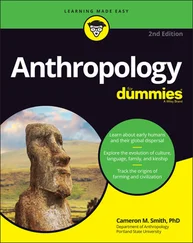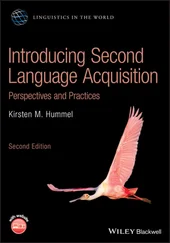1 Cover
2 Dedication Dedication Laura To the next generation:Zoë, Bela, Ettie, Maeve, Otto and Gus Tomislav To Brian Morris who inspired in me a love for anthropology and teaching ‘Don’t be satisfied with stories, how things have gone with others. Unfold your own myth.’ Rumi
3 Title Page INTRODUCING ANTHROPOLOGY WHAT MAKES US HUMAN? 2nd Edition Laura Pountney Tomislav Marić polity
4 Copyright Copyright © Laura Pountney and Tomislav Marić 2021 The right of Laura Pountney and Tomislav Marić to be identified as Author of this Work has been asserted in accordance with the UK Copyright, Designs and Patents Act 1988. First edition published in 2015 by Polity Press This edition first published in 2021 by Polity Press Polity Press 65 Bridge Street Cambridge CB2 1UR, UK Polity Press 101 Station Landing Suite 300 Medford, MA 02155, USA All rights reserved. Except for the quotation of short passages for the purpose of criticism and review, no part of this publication may be reproduced, stored in a retrieval system or transmitted, in any form or by any means, electronic, mechanical, photocopying, recording or otherwise, without the prior permission of the publisher. ISBN-13: 978-1-5095-4415-8 A catalogue record for this book is available from the British Library. The publisher has used its best endeavours to ensure that the URLs for external websites referred to in this book are correct and active at the time of going to press. However, the publisher has no responsibility for the websites and can make no guarantee that a site will remain live or that the content is or will remain appropriate. Every effort has been made to trace all copyright holders, but if any have been overlooked the publisher will be pleased to include any necessary credits in any subsequent reprint or edition. For further information on Polity, visit our website: politybooks.com
5 Preface Preface It is not an understatement to suggest that there has never been a more important time for the skills and insights that anthropology provides. In the period of time that has elapsed since the first edition of this book, there have been huge shifts in people’s lives, both in the small details and at the global level. Anthropology itself has evolved, towards a more progressive, self-aware, postcolonial, engaged, forward-thinking reflexive discipline in which it is acutely aware of its (not unproblematic) past. This second edition reflects the evolution of the subject as it makes sense of increasingly salient issues, in particular, the multiple and complex effects of climate change, global flows, increasing interconnectedness as well as the emergent possibilities afforded by greater use of technology. The key message of this second edition, however, remains one of hope. As we face climate change, social turmoil on a local and global scale, along with changing political and economic systems around the world, we strongly feel that anthropology should be used to confront some of the most pressing and challenging global issues of our time. At a time when differences between individuals and societies have become ever more significant, this book reflects the experience of many anthropologists and shows that, by understanding ‘others’ and reflecting on one’s own cultural values, a more sensitive and compassionate view of the world can be achieved. Anthropology continues to be a subject that encourages a non-judgemental and respectful attitude towards others. Nowhere have the effects of this been felt more than in education, where students embark on their own anthropological journey with a particular view of the world that may have been informed by all kinds of different opinions, only to leave having become aware of the complexity and value of all human cultures. Students of anthropology not only see the world differently; they also see themselves differently and begin a process of self-awareness that undoubtedly enriches their own lives and the lives of others as a result. This second edition builds upon what readers enjoyed most about the first edition, namely reference to a wide range of classic and contemporary ethnographic research and films, a conceptual clarity and an accessible introduction to the theoretical ideas within the discipline at the present time.
Who is This Book For? Who is This Book For? This book is an introduction to anthropology and its subfields. It is important that readers recognize that it is not intended to cover every area of the subject; rather, it contains selected topics that may be of interest and explores them in an introductory way. It was written to encourage people to begin to take an active interest in the subject, based on several successful and very enjoyable years of teaching anthropology at pre-university level. The book introduces information about what anthropologists do and how the discipline has evolved, and explores some of the subject’s subfields. It will accompany any introductory course in anthropology and support those with an interest in a particular area of anthropology, particularly newly emerging areas. Many of the topics that have been included will chime with introductory undergraduate courses. The book will also be an excellent guide for those studying the anthropology International Baccalaureate, as well as anyone wishing to know more about the subject generally. We hope that it will provide a starting point from which readers can explore areas of interest in greater depth.
What Makes Us Human? What Makes Us Human? This question lies at the heart of this book and, indeed, the subject of anthropology. We begin by taking a look at how early humans diverged from other primates, examining some of the important physical changes that occurred as well as some of the features of human cultural evolution, including insights into new ways of understanding human evolution. As human physical evolution has helped shape human culture, the role of human biology appears in various places throughout the text. The rest of the book explores different aspects of human culture, from how people use the body to express their identity through to different ideas about what it means to be a person. There is a focus on contemporary anthropological research, as well as acknowledgements of the contribution of classical anthropological work. It is clear, for example, that new forms of technology are playing an ever-greater role in people’s lives, and this is reflected in anthropology, where studies are now being carried out in virtual worlds. Also, since climate change and globalization affect the vast majority of human societies, there are examples of ethnographic studies relating to the complex effects of these processes.
Culture: Universality and Diversity Culture: Universality and Diversity Given that the book is based predominantly upon cultural anthropology, it is worth thinking for a moment about what culture is. In the simplest terms, culture relates to everything that humans do that goes beyond their biological evolution. It is informed and shaped by the material world that lies beyond them. However, the degree to which biology shapes human behaviour is much disputed. It might be useful to see culture as the way of life of a particular group. Humans are social beings, and it is only through their relations with other humans, species and inanimate objects that cultural characteristics become apparent. This book is concerned with cultural universals, things that all social groups do, while at the same time exploring the different ways in which such cultural practices are manifest.
Ethnographic Research Ethnographic Research An important difference between anthropology and other disciplines is the centrality of ethnographic methodology. This in-depth, detailed research goes beyond many of the methods found in other disciplines in that it involves so much personal involvement and commitment from the researcher. Anthropologists often spend long periods of time with the people whom they study, and this tends to be within the personal, private spaces of their lives. It is frequently through spending time with people, working, eating and laughing with them, that important anthropological findings occur – more often than not, unexpectedly. Examples of ethnographic research are central here, summarized throughout the book. These are not meant to substitute for the full ethnography; rather, they serve as an introduction to the main research.
Читать дальше












